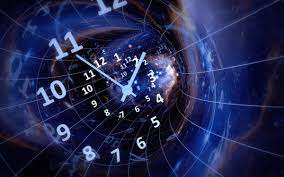
The God Who Has Time on his/her Hands
I know little about physics in general, and even less about astronomy, but I’m interested in both and am fascinated by astronomical discoveries.
We live in a remarkable age for discovering and exploring our universe. The James Webb Space Telescope, the most powerful space observatory yet, is a big part of that. Another is the NASA rover project that has produced fantastic pictures of Mars.
Many pictures from space show evidence of spectacular explosions and disruptions. Scientists talk about pulsars and black holes, infant exoplanets and dark matter. Honestly, it’s mostly Greek to me.
The Time Involved
What intrigues me is the time involved in forming the universe and the earth as we know it and its relationship to God’s revelation. And let me be clear, I believe in evolution and science and see no contradiction between science and religion.
Scientists have at least two ways of measuring the age of the universe, according to Wikipedia. They attempt to measure from The Big Bang, a physical theory that describes how the universe expanded from an initial state of high density and temperature. In my view, this is not a “beginning.” Some type of matter must already have had to exist.
A Catholic priest named Georges Lemaître is credited with first speculating about what we call the big bang, by the way. Wikipedia says he was a Belgian theoretical physicist, mathematician, astronomer, and professor of physics at the Catholic University of Louvain who died in 1966. He was the first to theorize that the recession of nearby galaxies can be explained by an expanding universe, which was confirmed soon afterwards by Edwin Hubble.
“The other explanation, held by proponents such as Stephen Hawking, asserts that time did not exist when it emerged along with the universe. This assertion implies that the universe does not have a beginning, as time did not exist “prior” to the universe.” Despite Hawking’s being one of the most famous atheists, this explanation seems close to religious idea of the “eternal.”
Estimates Vary
Estimates of the age of the universe vary but I found one that places the estimated time from the Big Bang at 13.7 billion years. Scientists appear to be more certain of the age of our solar system and of planet earth, at 4.6 billion and 4.5 billion respectively.
As for human beings, the latest common ancestor of humans and chimpanzees is estimated to have lived10 to 5 million years ago. Homo sapiens, more or less humans as we know them today, emerged an estimated 300,000 years ago. Scientists say an incalculable number of planets, plants and animals have come and gone since the beginning of the universe.
So, when did God first reveal him/herself to humans? That depends on what you consider God’s revelation. You could start with the hieroglyphs of ancient Egypt or the ancient Persian texts, which show that belief in “higher beings” was beginning to evolve among ancient humans. Or if you believe that God only began to reveal him/herself with Abraham, the father of Judeo-Christian faith, you’re talking about an estimated 500 to a 1,000 years before Jesus.
Outside Time and Space
In either case, I wonder what God was doing all this time before revealing him/herself. Could the delay be because God exists outside time and space – as hard as that concept is to grasp – and that God has a lot of “time” on his/her hands? But why did God wait so long to reveal him/herself? We Christians like to say that we’ve been around 2,000 years (and other religions have been around a lot longer). But those periods are drops in the bucket when you consider the age of the earth, let alone the universe.
I believe this “tardiness” on God’s part is explained by the choice to create through evolution – spiritual as well as physical. God chose, it seems, to reveal him/herself slowly and gradually, allowing plenty of time for preparation. And who knows whether God’s revelation, and all of evolution, is nearing its completion? There may be much more to come!
I suppose some readers would say that I should heed the example of the author of Psalm 30 (31 in Protestant Bibles), who wrote, “O Lord, my heart is not proud nor haughty my eyes. I have not gone after things too great nor marvels beyond me.”




